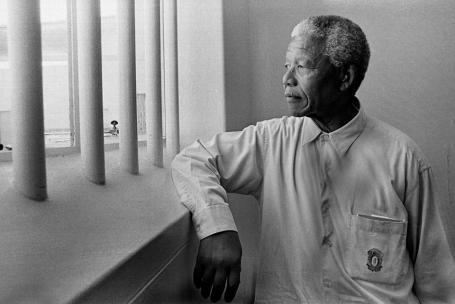Today, the City of Edinburgh Council remembered Nelson Mandela. In addition to a motion seeking an appropriate memorial to Mandela in the city, after a moment’s silence, each political group was invited to contribute some thoughts. Here is what I said.
So much has been said about Mandela in the last seven days, but I would like to say a few words here today as a fellow South African.
Mandela was truly a remarkable man. We have heard much about his grace, magnetism, personal sacrifice. He has become the personification of the anti-apartheid struggle.
Had it not been for him, it is possible that the transition to majority rule in South Africa would have been very, very bloody. Had it not been for him, it is possible that the role of reconciliation in South Africa’s politics, and indeed global politics, would have been much diminished.
And, in many, much smaller ways, his political actions highlighted a deep commitment to justice and fairness. His first proper job was as a nightwatchman at a mine but he was fired when they discovered he’d runaway from home to escape an arranged marriage. He was branded the Black Pimpernel by the South African media when he defied orders not to travel around the country of his birth, doing so disguised as a chauffeur.
In prison he was elected to a four man “High Organ” which must have had some influence as they were able to get the Commander of Robbin Island reassigned for overuse of violence against the prisoners.
A few years prior to his release Mandela had rejected an offer of release as it came with the condition that he have a “cooling off period” outside the country; he was not prepared to leave his country. And he was the last recipient of the Soviet Union’s Lenin Peace Prize and the first recipient of the Al-Gaddafi International Prize for Human Rights.
All of these show personal strength in the face of adversity, a commitment to his people, his country, and his beliefs, and I think a devious cheekiness which certainly served him well in his role as a global statesman.
So, a great man, certainly.
However, he himself rejected the deification of him, as a person, as the single figure responsible for the development of the new South Africa. He understood that the narrative of the great statesman depoliticised the struggle to which he devoted so much of his life. It is much easier to focus on the great personal characteristics of one man than it is to stare inequality and injustice in the face.
It also undermines the work of millions of others, across the world, who stood with him, fought with him, against oppression and for liberation. It is incredible to me that the rest of the anti-apartheid movement has been so utterly forgotten – when Denis Goldberg spoke at the Edinburgh World Justice Festival earlier this year, he did so to an audience of less than one hundred people.
So, let us remember a more complete legacy of Mandela, his human fallibility, his role as a soldier, his role as a radical.
Let us remember, too, that, during his time in government he did not fulfil all of the revolutionary promises to his people, and to hold him as infallible would be an insult to one of the principles he fought so hard for, that of human equality. It is clear that there is still so much to be done in that beautiful country.
His message, that we collectively have the power to make change in our society, should be what we take from his life. That real democracy and real equality are the bedrock of a truly fair society. That injustice of all kinds, whether based in racism, poverty or any form of oppression is something that we cannot tolerate and must oppose.
I want to end with a quote, not from Mandela, but from his great friend and fellow activist, Chris Hani, who, when asked whether or not he was looking forward to being in the new government in the new South Africa (which he never saw, being assassinated in 1993), replied:
“The perks of a new government are not really appealing to me. Everybody, of course, would like to have a good job, a good salary, and that sort of thing. But for me, that is not the be-all of a struggle. What is important is the continuation of the struggle – and we must accept that the struggle is always continuing – under different conditions, whether within parliament or outside parliament, we shall begin to tackle the real problems of the country. And the real problems of the country are not whether one is in cabinet, or a key minister, but what we do for social upliftment of the working masses of our people.”
Colleagues, we still have much to do. Our struggle certainly continues.
But for now, hamba kahle Madiba. Amandlha!


